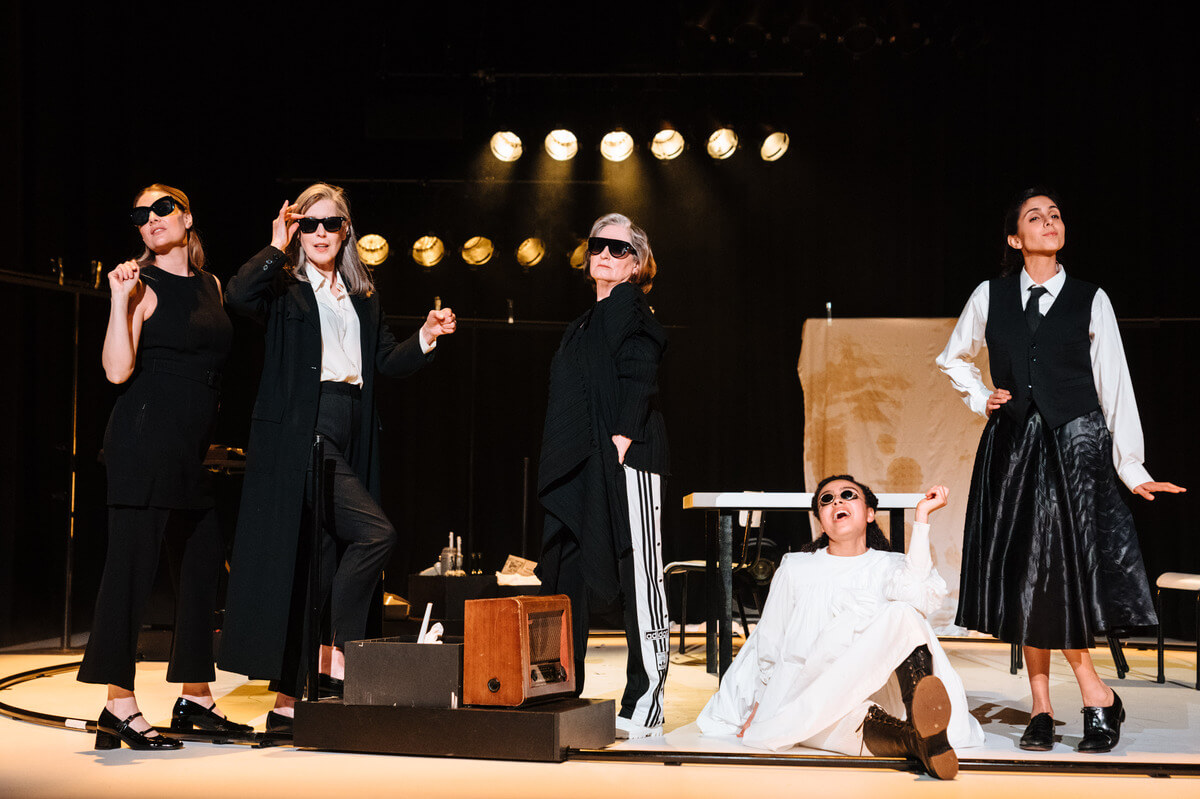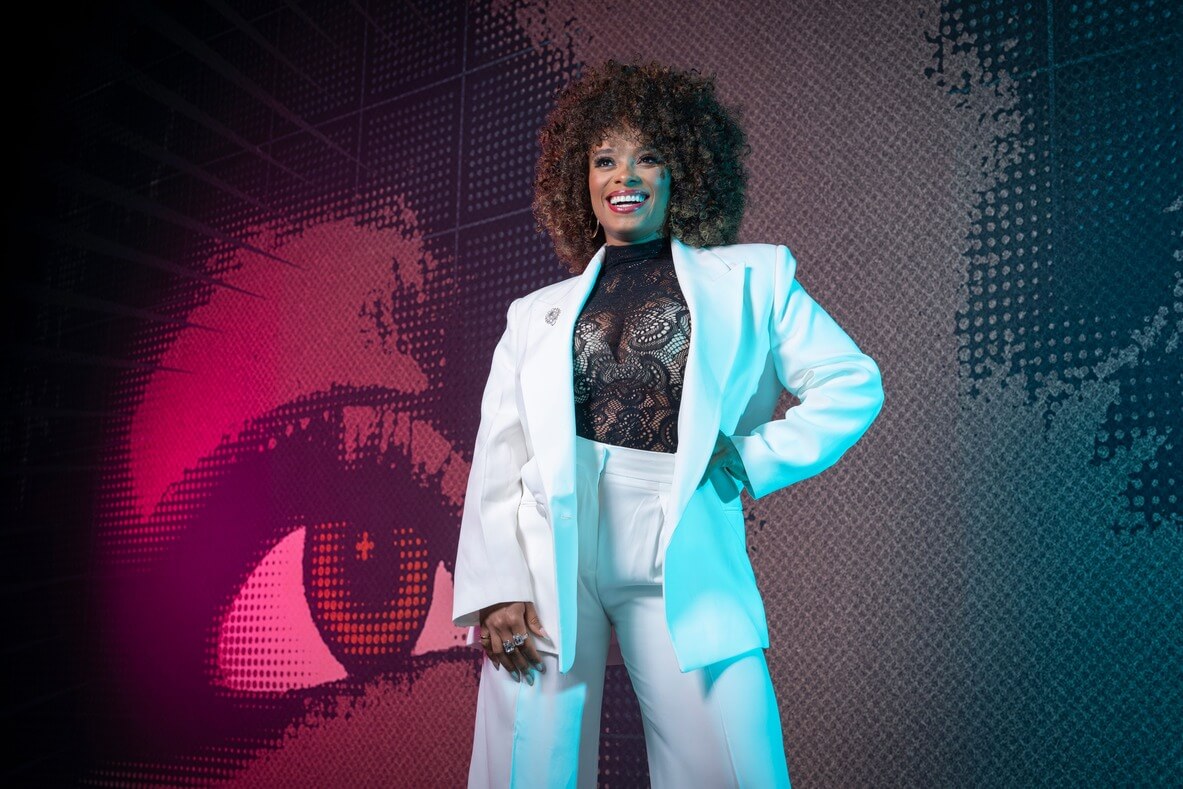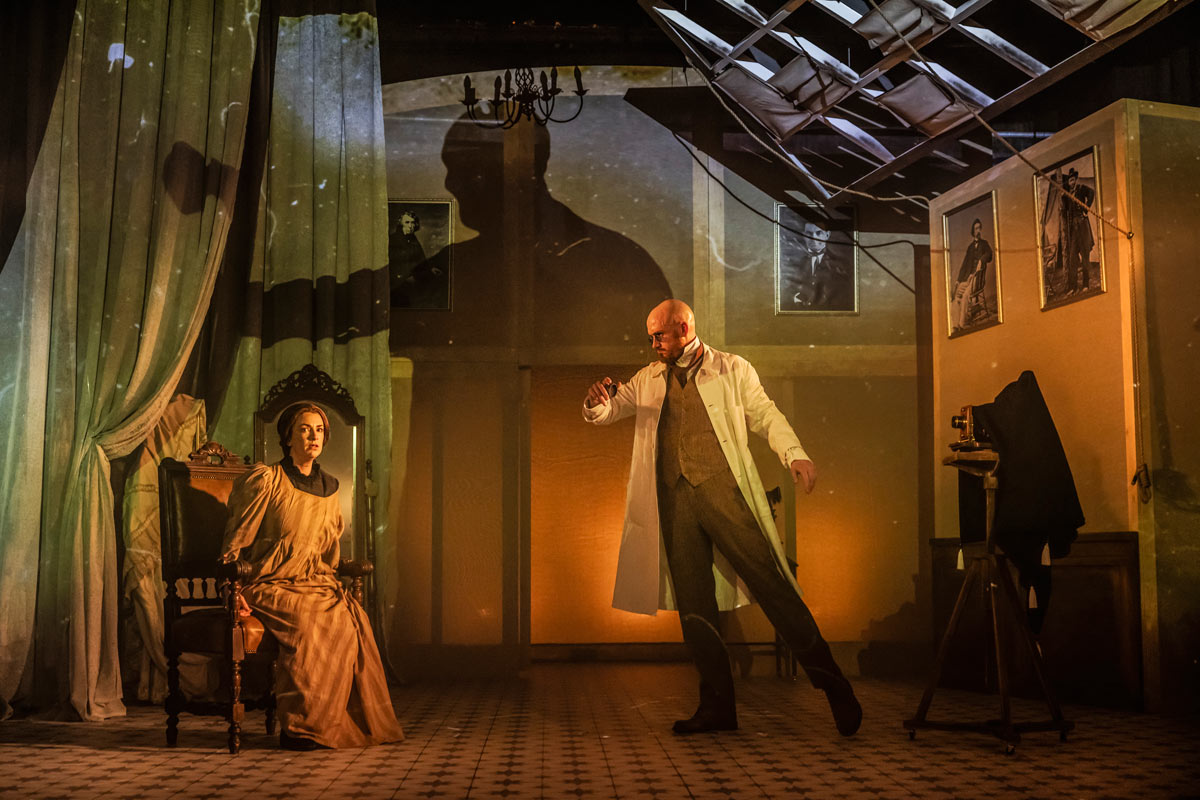For many, Annie Ernaux has only truly achieved prominence since becoming the first Frenchwoman to win the Nobel Prize for Literature in 2022, at the tender age of 82. Her writing style deploys an awareness of self which resonates truth and simplicity through the unflinching and visceral description of events experienced and the times in which they occurred. In THE YEARS (which is an English adaptation by Stephanie Bain, based on Director Eline Arbo’s Dutch translation of Les années) a cast of five women take us on a journey of the author’s life from 1941-2006… and what an incredible journey it proves to be.
Rather like The Seven Ages of Man (but eschewing the tedious first and last sections), each member of the cast is afforded special prominence for a particular section, announced by her being described whilst posing for a photograph from the period she represents. Her expression, clothing and other details, afford us a voyeuristic essence of the woman before us, as we delve into a more theatrical understanding of the events which shape her timeline.
The strongly supportive female collective play Annie through decades in which the girl grows to be a woman, a mother, a lover and finally, an endearingly tech-befuddled cat lady. The extensive list of trigger warnings which accompanies the play, is not only a reflection of the society in which we now live, but (and perhaps more significantly), a considerable testament to the real life experiences many woman have endured and overcome.
In no particular order, Annie’s journey covers, the end of the War, her sexual awakening, periods, the advent of rock’n’roll, masturbation, first physical congress with a male, the Vietnam War, unwanted pregnancy, abortion (before the act had been decriminalised and whilst it was still the preserve of backstreet unregistered practitioners), introduction of The Pill and the sexual liberation it afforded. Death of Stalin, marriage, a teaching career, Mao’s cultural revolution, birth of children, parenting, divorce, middle-aged freedoms, the taking of lovers, the menopause and finally, the reaching of an age where the generational divide and technological advances conspire to render you an imbecile in the eyes of those who interact with it on a daily basis.
The production has gained notoriety for its realistic representation of certain elements of Annie’s journey but these are depicted with humour and in the case of a terminated pregnancy, searing, heart-in-the-mouth honesty and extraordinary sensitivity.
As a man, (in this tedious age of political penis-measuring and belligerent grandstanding) the ultimate sense one gets from watching the production, is that women are superhuman and invariably far more resilient and adept at dealing with life’s challenges. They also have the innate capacity to share their stories with subtlety and a searing frankness.

 Romola Garai, Gina McKee, Deborah Findlay, Harmony Rose-Bremner and Anjli Mohindra in The Years at Harold Pinter Theatre. Credit Helen Murray.
Romola Garai, Gina McKee, Deborah Findlay, Harmony Rose-Bremner and Anjli Mohindra in The Years at Harold Pinter Theatre. Credit Helen Murray.

